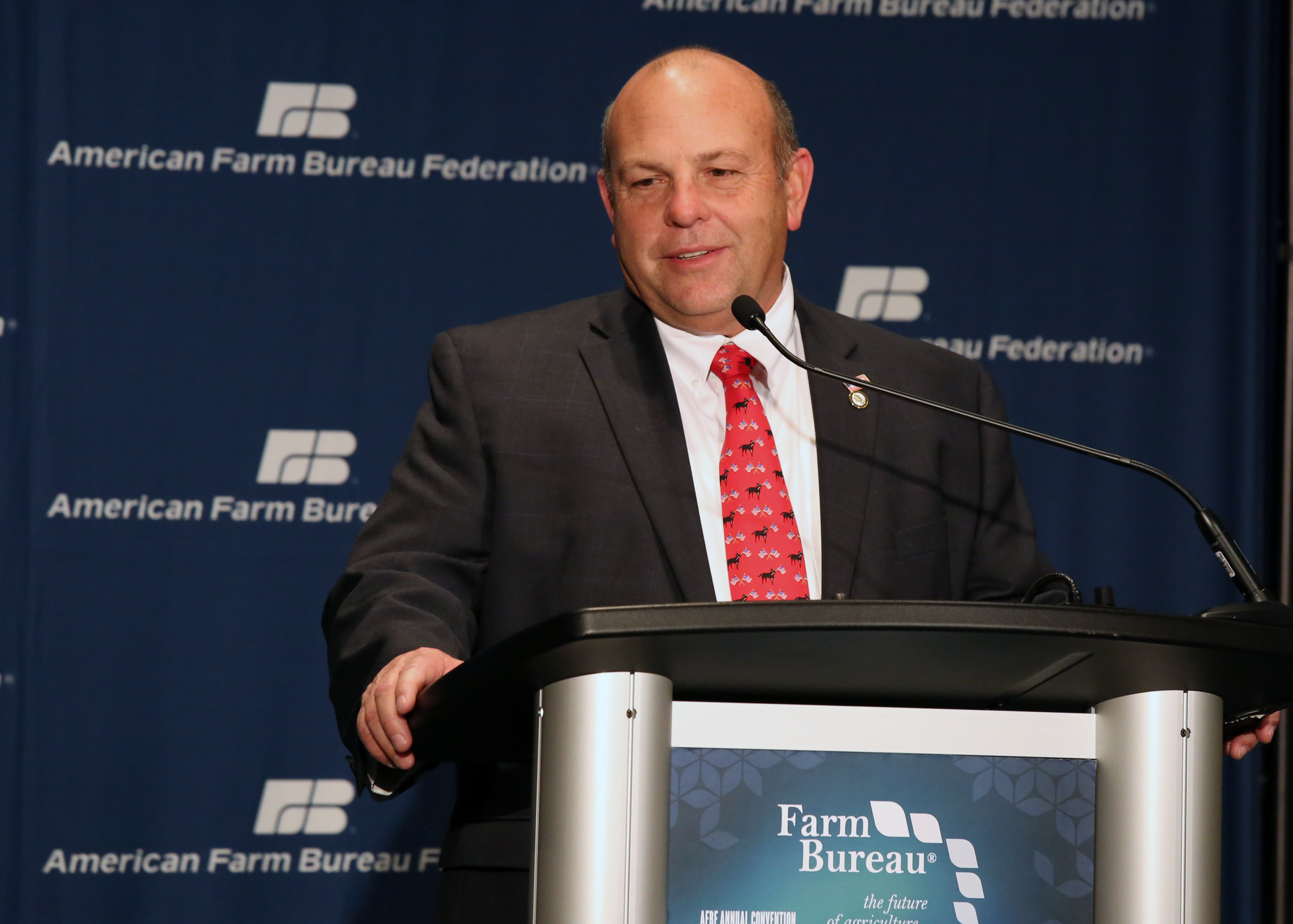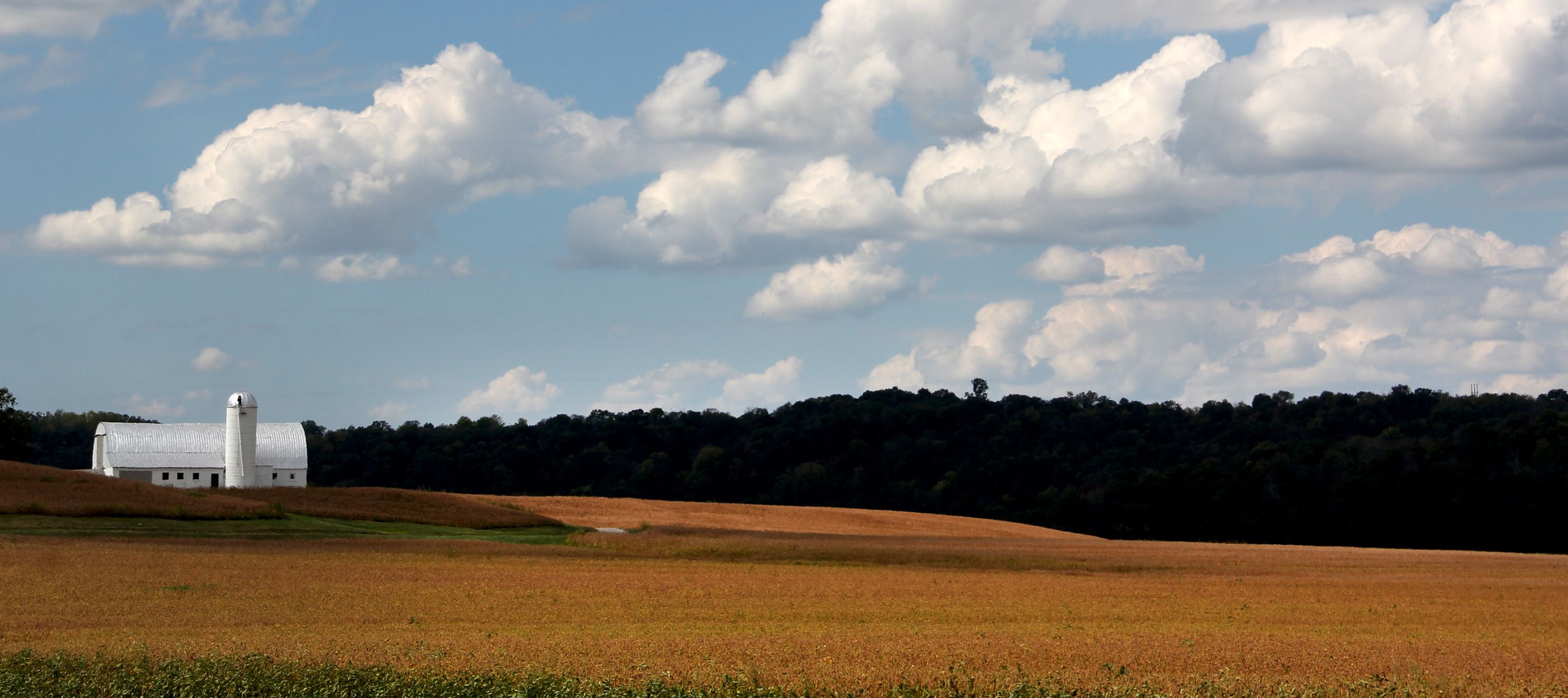GMO Labeling from a Local Perspective
Posted on Apr 5, 2016A bill proposed by Senate Ag Committee Chair Pat Roberts, that would have preempted state GMO labeling laws and instead, create a national, voluntary regulation, has failed to get the necessary 60 votes to make it to a Senate vote and is currently awaiting further action.
AFBF President Zippy Duval wasted no time in letting the Senate know his feelings in the matter after this latest action by the U.S. Senate.

“It is inexcusable that today’s Senate vote on a voluntary federal GMO labeling bill that preempts a damaging patchwork of state measures fell short,” he said after the March 16 vote. “While we appreciate Senate Majority Leader Mitch McConnell scheduling this floor vote today, we will continue our fight for this vital piece of legislation, along with Senate Ag Committee Chairman Pat Roberts and others, to secure a law that supports consumers, America’s farmers and ranchers and our nation’s system of affordable, productive agriculture.”
Duval continued, “To say we are angry with those senators who abandoned farmers and ranchers and turned their backs on rural America on this vote is an understatement. Their votes opposing this measure ignored science, threw our nation’s food system into disarray and undermined the public’s understanding of the many benefits of biotechnology in feeding a growing and hungry population.”
Vermont passed legislation that would go into effect this July which creates a mandatory labeling of any product that contains a GMO product. If the law is allowed to take place, any producer, anywhere, would have to comply with the rule in order to sell goods in that state.
From a local perspective, producers in Kentucky have experienced a diversification in their farming operations over the past two decades that has resulted in a multitude of value-added products which have been sold across the country and around the world.

The ability to reach such a wide market has helped countless farm families remain on their farms, some of which have been passed down for generations.
While many see a state law such as the one in Vermont as being pertinent only to producers in that state, it has the potential to affect food producers and manufacturing companies across the country including a direct effect on state producers.
Because of the introduction of GMO crop varieties, farmers here and across the country have lessened their carbon footprint on the land and cut the use of chemicals on their crops. The use of GMO crops has become the norm in the industry. In Kentucky alone, 93 percent of the state’s corn crop is of GMO varieties and 94 percent of the soybean crop is GMO.
Jack Trumbo, a corn and soybean producer from Shelby County, Kentucky said, because of the introduction of bio-technology into grains production, farmers have become extremely environmentally friendly.
“That’s one of the best things you can say, it doesn’t damage the environment,” he said. “And these products are some of the most tested of anything on this planet. The Department of Agriculture, the EPA and FDA, none of those folks will let us do anything that isn’t okay so this has been approved through a lengthy process.”
In addition to these environmental stewardship benefits, GMO use has resulted in costs savings with fewer chemicals and water resources being used in production.
Trumbo said bio-tech crops have also created a more plentiful food supply but there exist too much misinformation about the technology.
“I have had the opportunity to travel all over the world and I know what a hungry person looks like,” he said. “We have all this food to feed the world and some people think we are trying to send them poison with GMO crops.”
Proponents of bio-tech crops have long argued the issue at hand is not to deny the consumer the right to know what goes in their food but to produce a better, safer food supply for consumers. The growth of the local food movement is proof of the good relationships farmers have built with their local customers.
What is the issue however, is the cost and confusion a patchwork of state laws would create if laws such as the one in Vermont are allowed to take effect.
According to information from the Coalition for Safe Affordable Food, if the Vermont legislation is enacted, costs to consumers would increase in Kentucky by approximately $1,218,782,900 annually or $1084 per family.
“We don’t need a patchwork of laws where each state has something different. It would drive the food companies crazy and no one would be able to buy anything with any assurance of what’s in it,” said Trumbo. “I would roughly estimate our food prices would go up 10 to 15 percent.”
KFB President Mark Haney said producers in Kentucky have worked diligently to diversify their operations to meet the demands of consumers and have reached a point where their products are moving beyond the boundaries of the state and into more mainstream markets across the country.
“A voluntary, national regulation related to GMO labeling would allow the marketing efforts these farmers are making to continue while giving the consumer all the information they desire about what is in their food,” he added.
The future of the bill remains in question at press time. An alternative to Roberts’ bill is possibly in the works.
“We remain hopeful they will have a chance at redemption by correcting this situation that will otherwise lead to increased food costs for consumers and stifle agricultural innovation, which remains a strength of our nation,” concluded Duvall. “We must not let anyone forget that rural America and our farmers and ranchers do matter.”
Comments